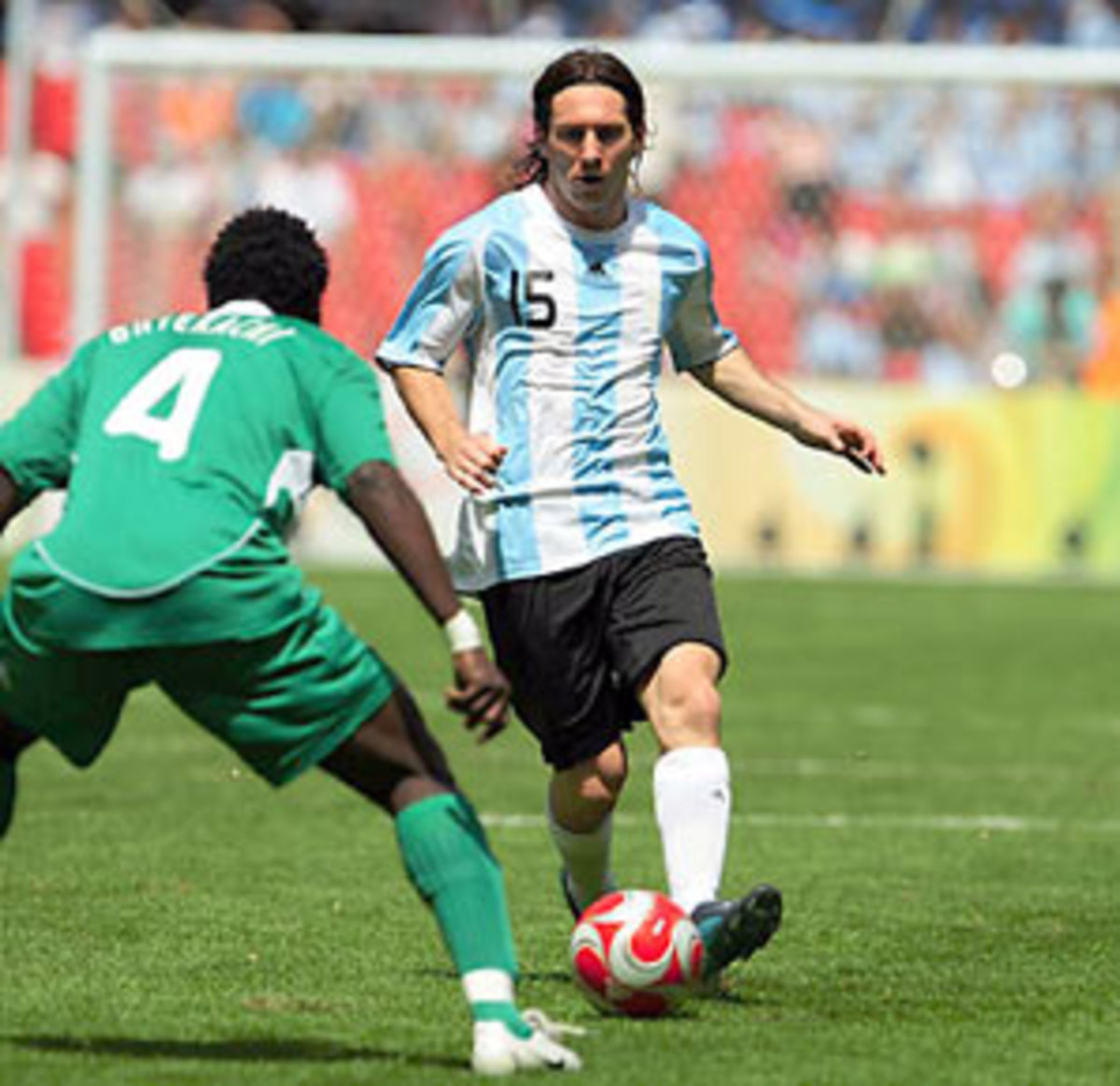Celebrating glory, looking ahead
True to the script, an outstanding Argentina team brushed aside all opposition in Beijing as it successfully defended its Olympic gold medal. La Albiceleste proved far superior to all the teams it faced in China as Sergio Batista's squad cruised to six successive victories, scoring 11 goals (second only to Brazil) while only conceding two (best at the Games).
And while Argentina's tight 1-0 win over Nigeria in the final was highly satisfying, its solid 3-0 thrashing of Brazil in the semifinals was perhaps the team's biggest achievement on the road to gold. In finally knocking off its South American archrivals, Argentina succeeded after so many failures against the Brazilians, who were considered equally strong to Batista's men after a great start to the competition.
The next quest for Argentina starts now: springboarding its Olympic experience into more success down the road, culminating in a real charge for the 2010 World Cup.
In Beijing, Argentina proved that its teamwork-based approach had its rewards: Los Albicelestes controlled every match they played and never put their title ambitions in danger. Even if it was tested by Nigeria in the gold-medal match -- in which it had to work extremely hard to win -- Argentina was never forced to play outside of its typical game plan.
Ironically, despite the excellent teamwork, what distinguished Argentina from the rest of the field was the quality of its collection of stars and the efforts they put in. No team came close to matching the clutch performances of Lionel Messi, Sergio Agüero, Juan Román Riquelme, Javier Mascherano and Ángel Di María -- not even Brazil. For once, Argentina's cast of stars lived up to its reputation.
Once again the standout was Messi. The menacing 21-year-old striker has proven that he is currently the most complete player in the world, and is the future of the Argentine senior national team.
After a relatively slow start to the Olympics (at least for his usual high standards) La Pulga reached his full potential in the decisive knockout matches, where he was Argentina's main inspiration. Not only did Messi get the better of defenders time and again with his amazing runs, but he also set up crucial goals with sublime penetrating balls, including Di María's superb winner against Nigeria.
Meanwhile, the experienced Riquelme led by example and returned to his top form with the national team. Not only did the highly motivated captain control Argentina's midfield with his brilliant leadership skills and positioning, but he also orchestrated most of its best attacking moves with his radar-like vision.
But perhaps the biggest surprise of the tournament was Di María. After breaking into the starting XI (replacing Ezequiel Lavezzi) in the quarterfinals, the Benfica striker didn't disappoint, and ended up scoring two crucial goals: the extra-time winner against the Netherlands and the gold-medal clincher against Nigeria. Di María was one of six players on the Olympic squad who last year helped Argentina lift the FIFA Under-20 World Cup in Canada, its fifth title in the last seven editions of the tournament. The striker's emergence in another key tournament further indicates the abundance of talent Argentina has developed over the last decade.
Other players with little national-team experience who made an impact at the Olympics were the defensive trio of Ezequiel Garay, Fabián Monzón and Nicolás Pareja. Pareja, the relatively unknown Anderlecht defender, was particularly impressive. He was a rock in the center of the Argentina defense, and is a candidate to cement himself a spot in the senior team in the near future.
If this Olympic team is any indicator, Argentina's future is getting brighter. Last week, senior national-team head coach Alfio Basile selected seven Olympians in his overseas-based squad for two crucial 2010 World Cup qualifiers against Paraguay and Peru in September. Riquelme and Monzón, both of Boca Juniors, are also expected to make the list.
Argentina seems to have it all figured out. With the World Cup approaching, a large part of Argentina's Olympic team will be put to the test in the qualifiers. Basile, who now has even more options to choose from, will be working closely with Olympic coach Batista in order to find the ideal blend heading into the World Cup.
Transmitting this experience into its World Cup campaign in two years time could go a long way in securing Argentina the most sought-after title.






